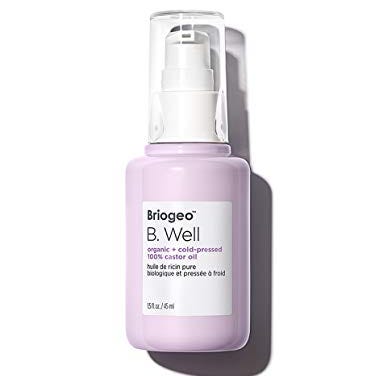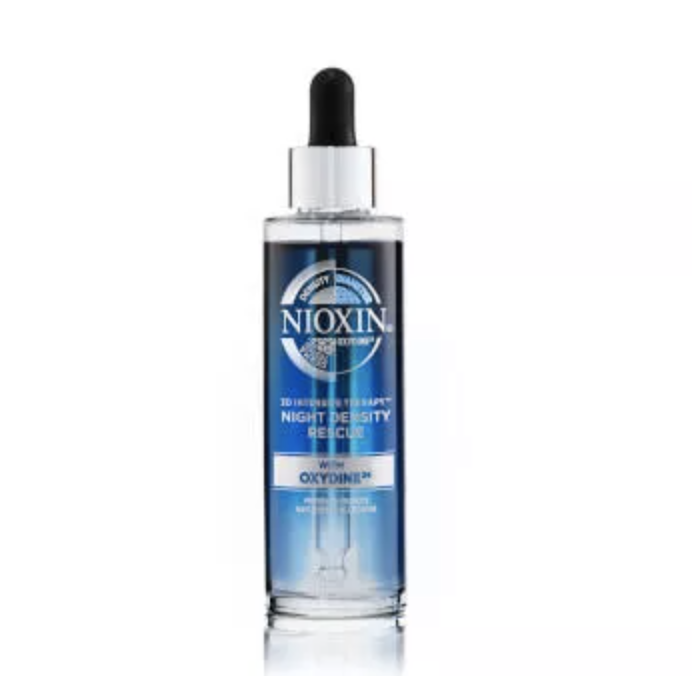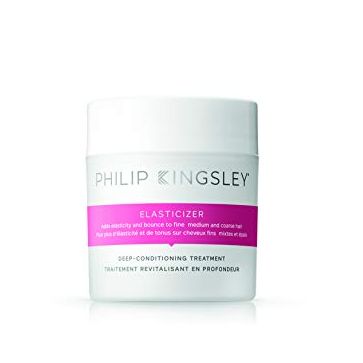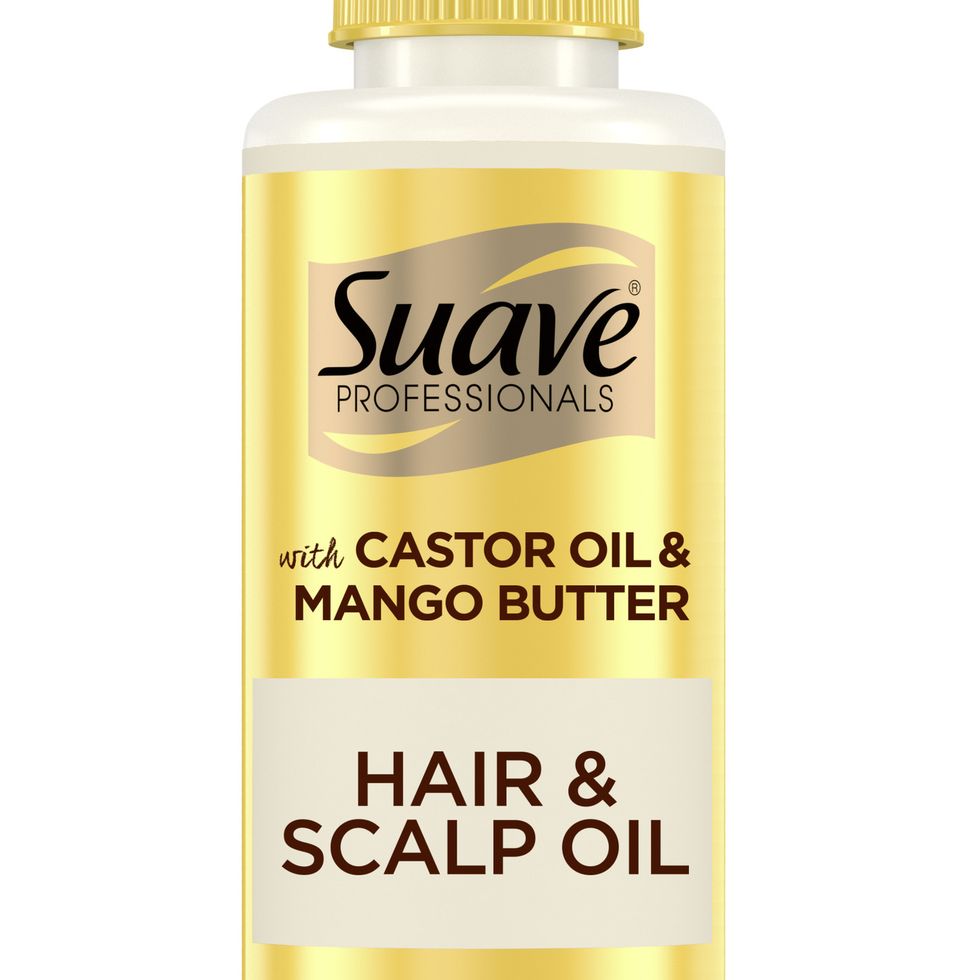
You often hear about the benefits of beauty oils for your hair, nails and skin. And for good reason: they can help with hydration, strengthening, healing and more. One of the most popular is castor oil (a.k.a. ricinus communis seed oil), which is derived from the castor bean plant native to India and East Africa, and and has been used for thousands of years for a variety of purposes, ranging from health to skincare to haircare. It’s an oil that can work wonders for hair, albeit maybe not in the way many people think.
“[Castor oil] is widely used in haircare for its supposed benefits as a hair growth stimulant and moisturizer,” says Snehal Amin, M.D., a board-certified dermatologist in New York. While there is a lot of speculation that it can help with hair thickening and growth, the jury is still out — currently, more scientific data is needed to prove any of these benefits. Here, the lowdown from experts on what castor oil can — and can’t — do for your hair.
What are the main benefits of castor oil for hair?
While castor oil may not help you to suddenly sprout fuller, longer hair, it does have some strand superpowers. The ingredient can:
- Smooth strands. “When added to leave-in conditioners or pre-shampoo hair treatments, castor oil can help to smooth the outer protective hair cuticle and add shine,” says Anabel Kingsley, brand president and consultant trichologist at Philip Kingsley.
- Nourish hair. “Castor oil is an emollient, so it can help hair feel less dry,” says Good Housekeeping Institute Beauty Lab Reviews Analyst Chiara Butler.
- Promote scalp health. “Its antibacterial properties help to reduce fungal and harmful bacteria on the scalp,” Dr. Amin explains.
- Prevent split ends and breakage. “By coating the hair shaft, it can protect the hair from breaking and future hair damage,” he adds.
- Helps purify hair and scalp. Castor oil also “absorbs dirt, which is an unexpected benefit,” Dr. Amin notes.
Does castor oil help hair growth or thickness?
Both Dr. Amin and Kingsley agree that there are no quality scientific studies clearly showing a benefit of castor oil for hair growth. “The thinking is that castor oil increases blood flow to the scalp and reduces inflammation, both of which are beneficial for hair growth,” Dr. Amin explains. “That being said, many of these hypotheses have not been proven by any rigorous research.” Kingsley adds that “the benefits of castor oil relate to the impact it can have on the condition, feel and appearance of hair that has already grown. It will not help stimulate new hair growth from the scalp.”
There is one study that was performed in silico — meaning simulated in a computer program — which showed that ricinoleic acid, a component of castor oil, may act similarly to prostaglandin analogues, which are known drugs for counteracting hair loss. “It’s very important to note that this study was speculative; the ricinoleic acid was not actually tested on humans or animals,” Butler explains. She adds that the most effective treatments for hair loss are FDA-approved drugs like Minoxidil and people who are struggling with hair loss should see a dermatologist for treatment.
What’s the best way to use castor oil for hair and can it be applied daily?
“Castor oil is on the thicker side and can make the scalp greasy,” Dr. Amin says. It should be thought of as a weekly treatment and is not meant for daily use. He suggests applying a small amount of castor oil to dry hair once per week, leaving it on for 30 minutes or longer, then washing it out with a clarifying shampoo. You can also mix it with other hair oils, such as coconut oil or almond oil, to balance the texture. “Pure castor oil is very viscous, so it can cause hair to feel oily and weighed down if too much is applied,” Butler adds.
Kingsley suggests using a pre-shampoo conditioning treatment containing castor oil (she recommends Philip Kingsley’s Elasticizer, which contains a blend of castor and olive oil). This type of treatment can improve hair’s elasticity, boost shine and help to reduce frizz. Depending on your hair type and the product’s directions, you can leave it on for anywhere from 20 minutes to overnight.
Does castor oil cause side effects like hair loss or damage?
While castor oil can cause side effects, it’s usually related to the scalp and should not cause hair to fall out. “Some people may have a skin sensitivity to castor oil, and this can cause problems when it’s rubbed into the scalp,” Kingsley says. Steer clear if you have a flaky, oily scalp condition, like seborrhoeic dermatitis, as “applying castor oil to your scalp and leaving it on can make the problem worse,” she explains.
Note that there have been reports of of allergic reactions to castor oil on skin, Butler says. Because of this, and the chance of contracting allergic dermatitis, Dr. Amin advises to apply only a small amount on a hidden area of skin (a DIY patch test) before using castor oil all over your head.
What hair types is castor oil best for?
Castor oil is ideal for any hair type that is dry or frizzy, Kingsley says. If you have fine hair, avoid leave-in castor oil formulas, as they can be heavy on strands, she advises: “Instead, look for lightweight creams or oil-rich pre-shampoo treatments, as they won’t weigh even the finest hair down.”
Dr. Amin suggests using castor oil if you have brittle, damaged hair or a dry scalp. “If you suffer from dandruff, steer clear of castor oil, since fungus may be causing scalp flakiness in this case,” he adds.
The best castor oil hair products to try
Contributing Beauty Editor
Dori Price is a New York City-based freelance writer and editor and beauty, style and wellness expert who was the Beauty & Fashion Director at Family Circle for 13 years before she joined Good Housekeeping, Prevention and Woman’s Day as a freelance beauty editor. She has also written for WomensHealthMag.com, Elle.com and HealthCentral.com.
Xhicboutique.com – Find this Product & More at Super Prices!
Source link








